Purgatory, often misunderstood and sometimes forgotten, holds a significant place in Catholic teaching. The Church describes it as a place or state of purification for souls who die in God’s grace but still need cleansing from residual sin before entering Heaven.
Saints, who dedicated their lives to deep prayer and communion with God, have shared unique insights into this spiritual reality.
Here are 10 profound truths about purgatory as revealed by Catholic saints.
1. St. Catherine of Genoa
Purgatory Is an Expression of God’s Love

St. Catherine of Genoa is known for her work, Treatise on Purgatory, where she described purgatory as a state of purification and divine love. She emphasized that souls in purgatory experience immense joy because they know they are on their way to Heaven. According to her, purgatory is not just about suffering but also about divine love, cleansing the soul to make it worthy of God’s presence.
The greatest suffering of purgatory is the overwhelming love of God, which is unable to be fully received until the soul is purified.
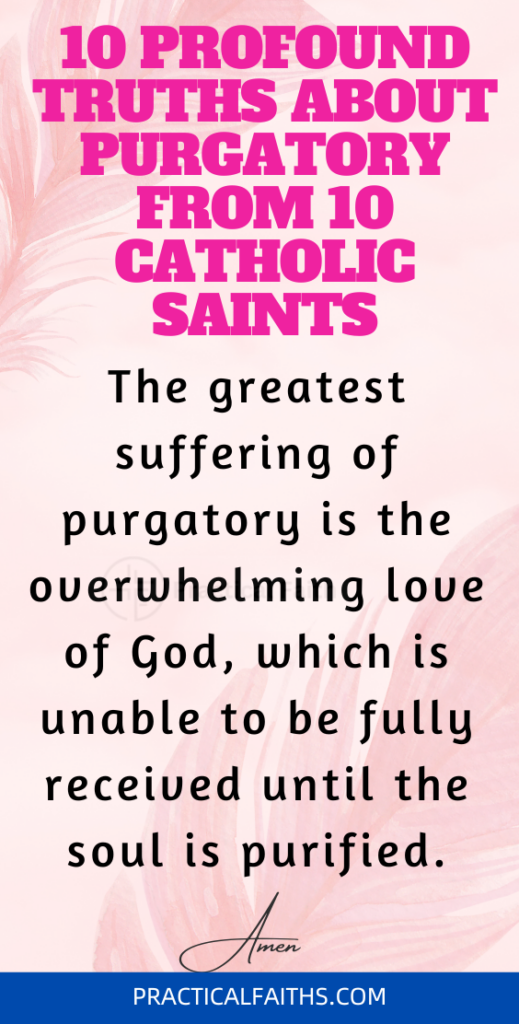
2. St. Faustina Kowalska
The Souls in Purgatory Long for Our Prayers

In her Diary, St. Faustina recounts her encounters with souls from purgatory who begged for her prayers. She understood that our prayers, sacrifices, and Masses could ease the suffering of these souls and even hasten their entrance into Heaven.
I saw my Guardian Angel, who ordered me to follow him. In a moment, I was in a misty place full of fire… I heard a voice within me saying, ‘My Mercy does not want this, but Justice demands it.

3. St. Thomas Aquinas
Purgatory’s Fire Purifies

St. Thomas Aquinas taught that the fire of purgatory is not the same as earthly fire, though it is intense. He emphasized that this fire purifies the soul of any remaining attachment to sin. According to Aquinas, the purification process allows the soul to love God more deeply and purely
The souls of the blessed who are in purgatory are cleansed by a purgative fire, so that they may enter Heaven free of any blemish.

4. St. John Vianney
Purgatory’s Suffering and Hope

St. John Vianney, the Curé of Ars, described purgatory as a place of both intense suffering and great hope. He explained that, unlike in Hell, souls in purgatory know they will eventually see God. This hope makes their suffering endurable.
The souls in purgatory are suffering more than we can ever imagine, but they are also filled with a deep hope because they know they are destined for Heaven.
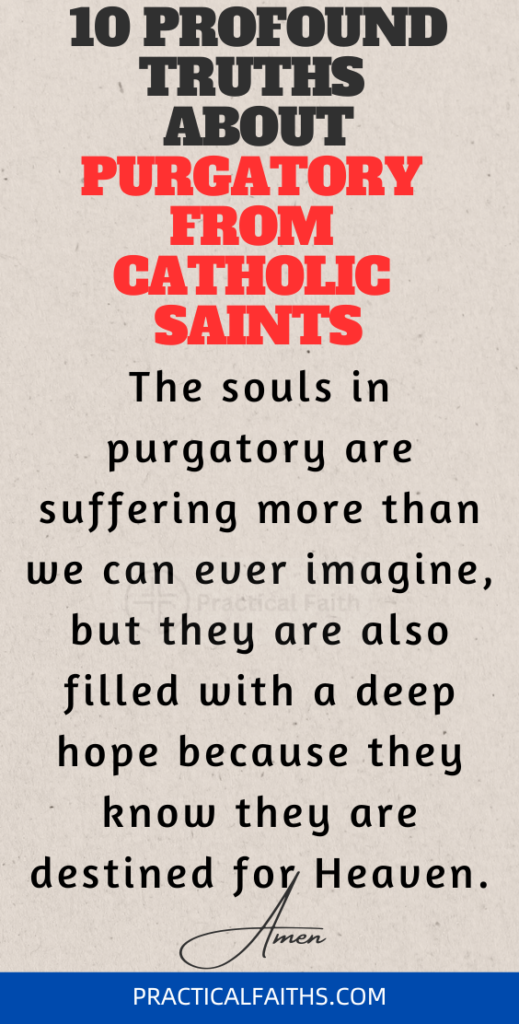
5. St. Padre Pio
The Importance of Offering Mass for Souls in Purgatory
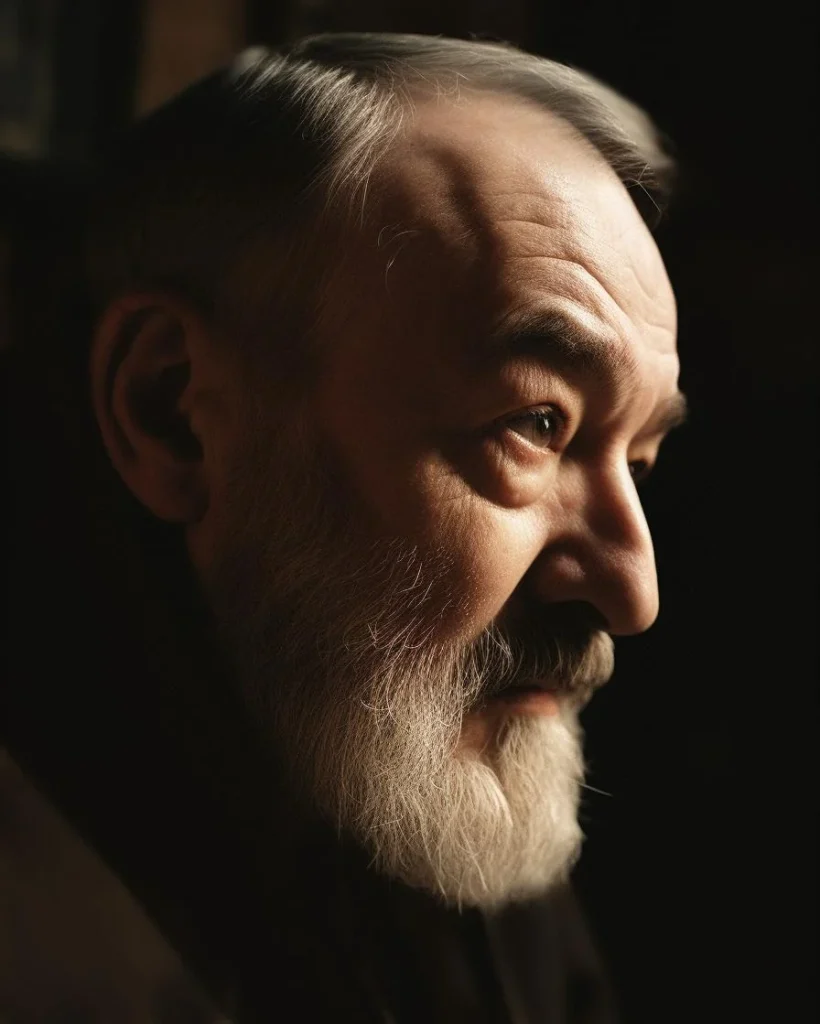
St. Padre Pio often spoke of souls in purgatory, urging Catholics to offer Mass for their release. He believed that the sacrifice of the Mass, as the highest form of prayer, brings immeasurable grace and consolation to these souls.
The souls in purgatory pray for us, and we pray for them. Thus, the love of God develops through these relationships.

6. St. Teresa of Avila
Detachment from Earthly Pleasures

St. Teresa of Avila believed that many souls go to purgatory due to an attachment to earthly pleasures and desires. She encouraged complete detachment from anything that draws us away from God, allowing us to be purified in this life rather than in purgatory.
Let us free ourselves from anything that is not for God. The more we rid ourselves of earthly desires, the more prepared we are for Heaven.

7. St. Gertrude the Great
Purgatory’s Release Through the Prayer of St. Gertrude

St. Gertrude the Great had a special devotion to praying for souls in purgatory. She received a prayer from Jesus promising to release many souls each time it was prayed. Her famous prayer has been adopted by many Catholics as a powerful way to intercede for the souls of the faithful departed.
Eternal Father, I offer Thee the Most Precious Blood of Thy Divine Son, Jesus, in union with the Masses said throughout the world today, for all the holy souls in purgatory.
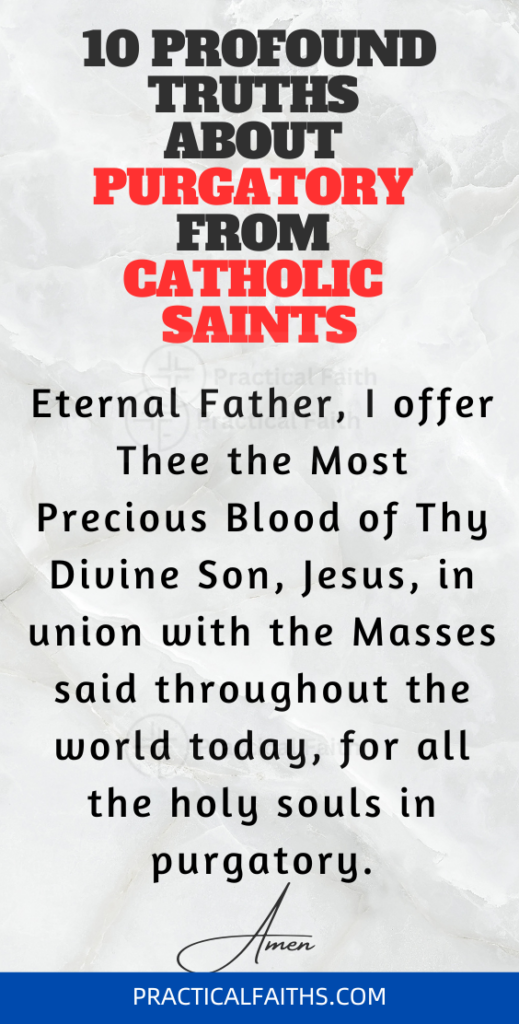
8. St. Alphonsus Liguori
The Purifying Role of Temporal Punishment
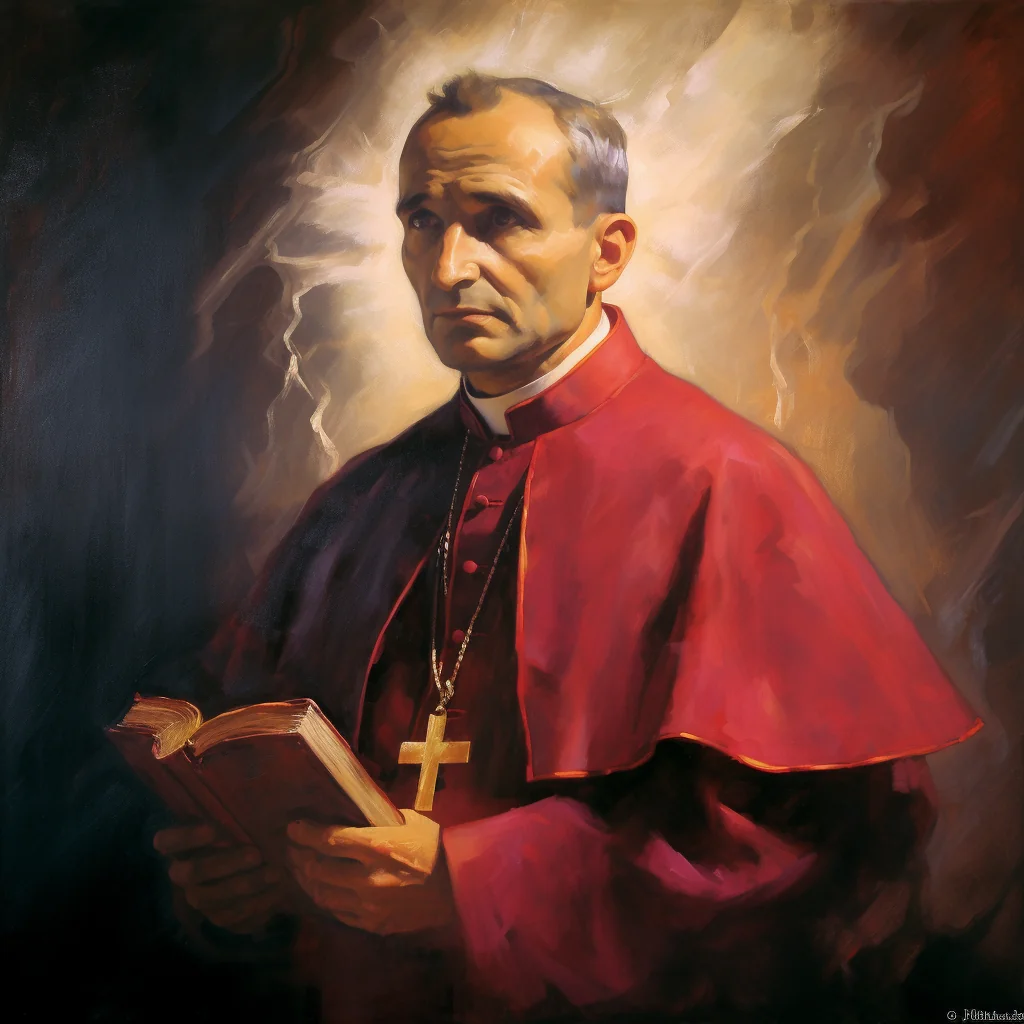
St. Alphonsus Liguori explained that purgatory serves as a place where temporal punishment is endured. Even if our sins are forgiven, the remnants of sin—its effects on the soul—still need purification. This process is vital for becoming fully aligned with God’s holiness.
Though sin is forgiven, its punishment remains. Purgatory is where souls experience the purifying effects of penance to enter the glory of Heaven.
– St. Alphonsus Liguori
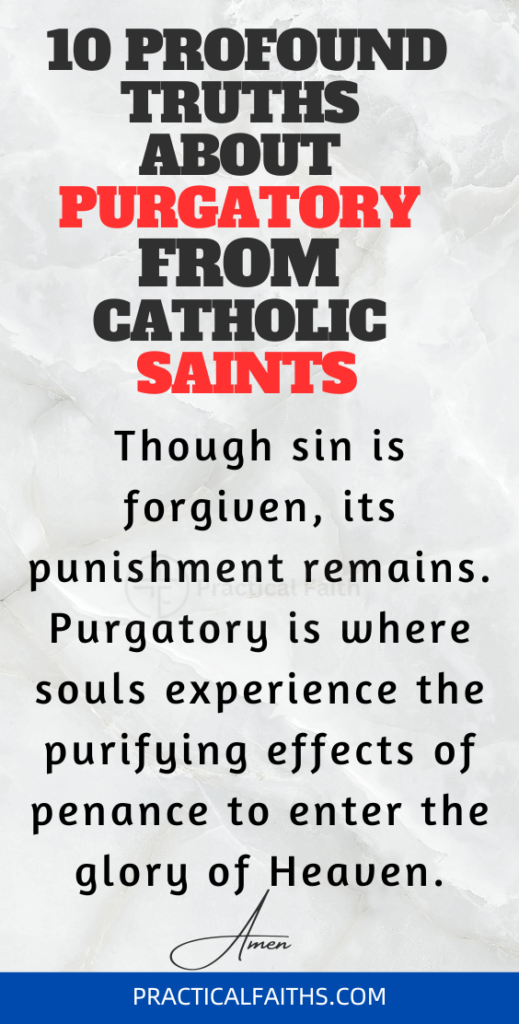
9. St. Augustine
Purgatory’s Cleansing Process

St. Augustine believed that purgatory is a necessary step for those who are not fully purified at the time of death. He explained that while God forgives our sins, purgatory cleanses the soul from any lingering attachment to sin, making it perfect in holiness.
Temporary punishments purify us from those things which were not utterly cleansed by our penance

10. St. Bonaventure
God’s Mercy in Purgatory

St. Bonaventure emphasized that purgatory is an expression of God’s mercy, not just His justice. He described purgatory as a place where God’s mercy provides the opportunity for souls to be purified. Without purgatory, many souls would not reach Heaven.
Purgatory shows God’s love in giving souls the chance to become worthy of His presence. It is His mercy that offers purification to those not yet fit for Heaven.

These saints offer profound insights into the mystery of purgatory, shedding light on its purpose, process, and importance in the spiritual journey. Purgatory is not a place of endless suffering but a merciful transition where souls are purified of sin and made worthy to enter God’s presence.
It serves as a reminder of God’s justice, His mercy, and the hope of Heaven that awaits us. By praying for the souls in purgatory, Catholics continue the communion of saints, helping these souls on their journey toward eternal joy and purity in Heaven.
YOU MAY ALSO LIKE
How to Become a Catholic Saint
The 15 Promises For Those Who Pray the Holy Rosary
Every Catholic Must know these 12 Archangels
10 Catholic Saints Who Received Visions of Jesus





